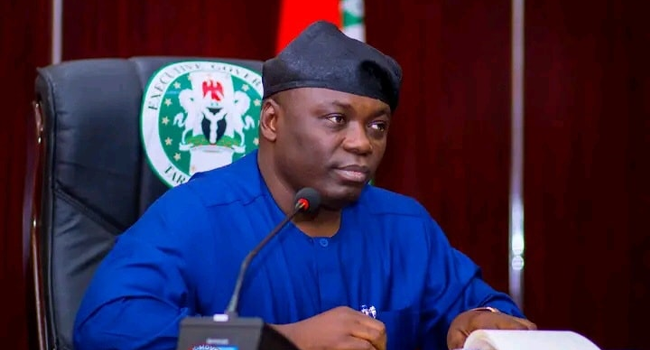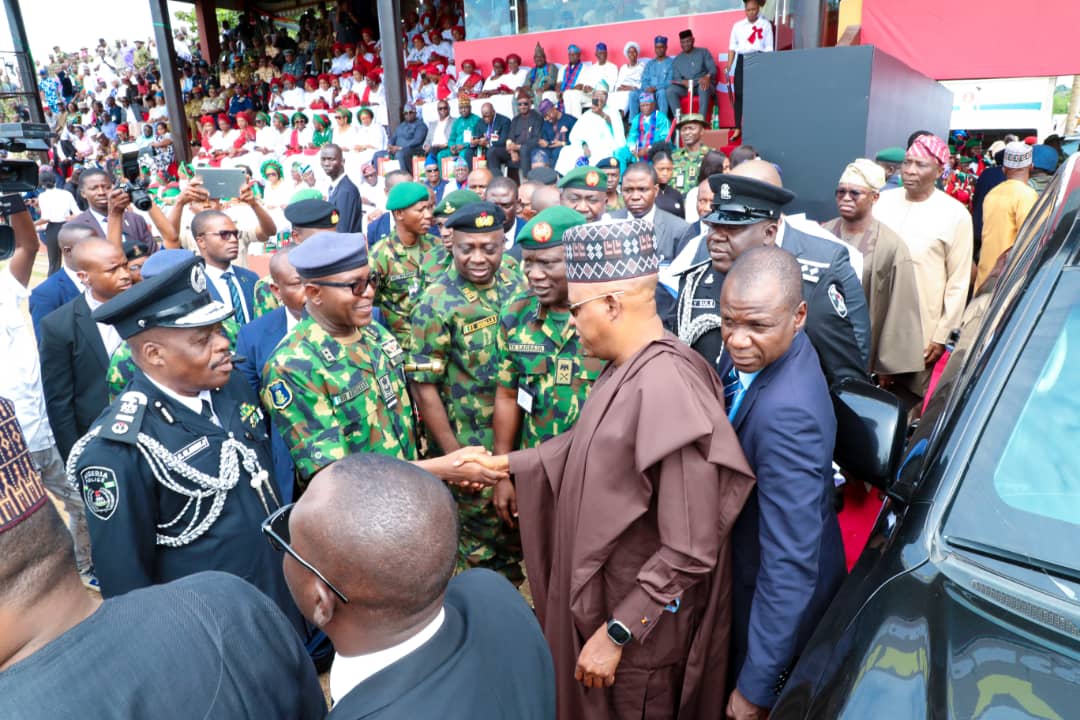The executive governor of Taraba State, Dr Agbu Kefas, has taken a significant step towards improving governance in the state by signing a directive to reduce the number of ministries from twenty-five (25) to twenty-one (21). This move is part of a comprehensive restructuring effort aimed at eliminating wastage, enhancing efficiency, and eliminating duplication of functions within the government.
According to a statement issued by Chief Gebon Timothy Kataps, Secretary to the Government of the State, the restructuring is a proactive response to the evolving challenges faced by Taraba State. Dr. Agbu Kefas, in his wisdom, has recognized the need for a more streamlined and efficient government structure that can effectively address the state’s socioeconomic and infrastructural priorities.
The restructuring plan involves realigning the ministries to better meet the changing needs of the state and promote seamless collaboration between departments. By optimizing resource utilization and streamlining processes, the government aims to improve service delivery and enhance the overall performance of the ministries.
The newly approved ministries under the restructuring plan are as follows:
Ministry of Agriculture and Food Security: This ministry will focus on developing and implementing sustainable agricultural practices, ensuring food security, and supporting the growth of the agricultural sector in the state.
Ministry of Commerce, Trade, and Industry: With a focus on economic growth and development, this ministry will facilitate trade and commerce activities, attract investments, and promote entrepreneurship in Taraba State.
Ministry of Digital Economy and Innovation: Recognizing the importance of technology and innovation in driving economic progress, this ministry will spearhead the development and implementation of digital strategies and initiatives to propel Taraba State into the digital age.
Ministry of Education: Dedicated to providing quality education to the people of Taraba State, this ministry will oversee the development and implementation of educational policies, curriculum enhancements, and the provision of necessary infrastructure in schools.
Ministry of Energy and Economic Development: This ministry will play a crucial role in developing the state’s energy sector, attracting investments in renewable energy, and driving overall economic growth and development.
Ministry of Environment and Climate Change: With a focus on environmental sustainability, this ministry will lead efforts to protect and preserve Taraba State’s natural resources, mitigate the effects of climate change, and promote eco-friendly practices.
Ministry of Finance, Budget, and Economic Planning: Responsible for managing the state’s finances, this ministry will ensure prudent fiscal management, effective budgeting, and strategic economic planning to foster sustainable growth.
Ministry of Heritage and Ecotourism: This ministry will focus on preserving and promoting Taraba State’s rich cultural heritage and natural attractions, contributing to tourism development and creating opportunities for economic growth.
Ministry of Health: Committed to providing accessible and quality healthcare services, this ministry will oversee the development and implementation of healthcare policies, the improvement of healthcare infrastructure, and the promotion of public health initiatives.
Ministry of Information and Reorientation: With a mission to effectively communicate government policies and programs to the public, this ministry will ensure transparency, accountability, and public engagement through strategic information dissemination.
Ministry of Justice: Upholding the rule of law and ensuring a fair and just legal system, this ministry will oversee legal matters, provide legal advice to the government, and promote access to justice for all citizens.
Ministry of Poverty Alleviation: Dedicated to eradicating poverty and improving the livelihoods of the less privileged, this ministry will implement programs and initiatives that empower individuals and communities to overcome poverty.
Ministry of Rural and Urban Development: Focused on balanced development across rural and urban areas, this ministry will oversee the planning and execution of infrastructure projects, promote rural empowerment, and enhance the quality of life for all citizens.
Ministry of Science and Technology: Emphasizing the importance of scientific advancements, this ministry will drive research and innovation, promote technological solutions, and foster collaboration between the scientific community and industries.
Ministry of Special Duties and Social Services: This ministry will be responsible for handling special assignments and providing social services to vulnerable groups, ensuring their inclusion and welfare.
Ministry of Social Justice and Reintegration: Committed to promoting social justice and supporting the reintegration of marginalized individuals into society, this ministry will advocate for equality, inclusivity, and empowerment.
Ministry of Transportation Development: With a focus on improving the transportation infrastructure and services in Taraba State, this ministry will drive initiatives to enhance connectivity, facilitate trade, and promote efficient transport systems.
Ministry of Women Affairs and Child Development: Dedicated to the welfare and empowerment of women and children, this ministry will implement programs and policies that promote gender equality, protect women’s rights, and ensure the well-being of children.
Ministry of Water Management and Aquatic Affairs: Recognizing the significance of water resources, this ministry will be responsible for the sustainable management of water, ensuring access to clean water, and promoting aquatic activities in the state.
Ministry of Works and Infrastructural Development: Tasked with overseeing the planning and execution of infrastructural projects, this ministry will focus on enhancing the state’s physical infrastructure, including roads, bridges, and public facilities.
Ministry of Youth and Sports Development: Committed to empowering the youth and promoting sports excellence, this ministry will implement youth-focused programs, provide opportunities for skill development, and support sporting activities in Taraba State.
In addition to the reduction in ministries, the restructuring plan also involves the consolidation of several key offices within the governor’s office.
The State Planning Commission, Bureau for Local Government, Tradition and Chieftaincy Affairs, Bureau for Land and Survey, and Bureau for Solid Minerals will now be domiciled in the office of the governor. This move aims to enhance coordination, streamline decision-making processes, and improve overall governance in Taraba State.
By implementing this comprehensive restructuring of ministries and government offices, Taraba State is poised to achieve greater efficiency, improved service delivery, and enhanced governance.
The reduction in ministries and the realignment of functions will enable the government to allocate resources more effectively, eliminate duplication of efforts, and focus on addressing the pressing needs of the state. It is a significant step towards fostering socioeconomic development, attracting investments, and improving the overall well-being of the people of Taraba State.











